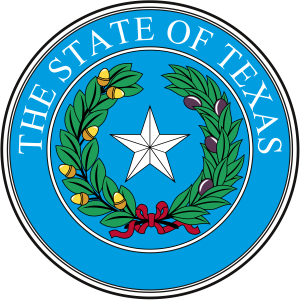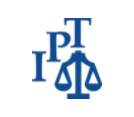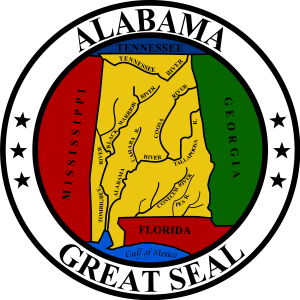Pillsbury SALT partner Robert P. Merten III will be participating as an instructor in the 2022 Summer Tax Institute put on by the UC Davis School of Law.
2022 CalTax Foundation Webinar Series
Pillsbury SALT partner Breann Robowski will participate in the CalTax webinar series on June 7.

CalTax’s 96th Annual Meeting
Pillsbury SALT partner Carley Roberts will be participating in a panel discussion on income tax at the CalTax Annual Meeting on June 2. 
Broker-Dealer Successfully Fights Look-Through Sourcing in New York
An administrative law judge in the New York State Division of Tax Appeals rejected the New York State Division of Taxation’s use of a look-through approach for sourcing fees paid to a broker-dealer for marketing, recordkeeping, and support services. The April 28, 2022 determination in Matter of TD Ameritrade, Inc., confirms that such fees are properly sourced to the location of the customer responsible for payment, in this case two banks. 
COST’s SALT School Programs
Pillsbury SALT Counsel Evan Hamme will be an instructor at the COST Intermediate and Advanced Income Tax School scheduled for May 15-19, 2022.
COST’s Intermediate and Advanced Income Tax School is being held simultaneously with COST’s SALT Basics School and Intermediate and Advanced Sales and Use Tax School in Atlanta, GA. These programs provide learning opportunities for attendees to explore and gain a deeper understanding of SALT Income and Sales and Use Tax issues. Continue Reading ›
Texas Supreme Court Sides with Sirius XM’s “Straightforward” Interpretation of Service Receipt Sourcing Statute
 The Texas Supreme Court issued a decision holding that service receipts are sourced to the physical location of the taxpayer’s personnel or equipment that performed the service for which the customer paid. The decision resolves disagreement regarding the proper interpretation of a Texas franchise tax apportionment statute that addresses the sourcing of service receipts. The statute sources a service provider’s receipts to Texas to the extent the service is “performed” in Texas. The taxpayer argued that its receipts from sales of satellite radio programming subscriptions were properly sourced to the location where its personnel and equipment performed the radio production and transmission services necessary for its radio programming (“origination sourcing”). The Comptroller interpreted the apportionment statute to source service receipts to Texas if the “receipt-producing, end-product act” takes place in Texas, which the Comptroller argued occurred where each subscriber’s radio received and decrypted the taxpayer’s radio signal (“destination sourcing”).
The Texas Supreme Court issued a decision holding that service receipts are sourced to the physical location of the taxpayer’s personnel or equipment that performed the service for which the customer paid. The decision resolves disagreement regarding the proper interpretation of a Texas franchise tax apportionment statute that addresses the sourcing of service receipts. The statute sources a service provider’s receipts to Texas to the extent the service is “performed” in Texas. The taxpayer argued that its receipts from sales of satellite radio programming subscriptions were properly sourced to the location where its personnel and equipment performed the radio production and transmission services necessary for its radio programming (“origination sourcing”). The Comptroller interpreted the apportionment statute to source service receipts to Texas if the “receipt-producing, end-product act” takes place in Texas, which the Comptroller argued occurred where each subscriber’s radio received and decrypted the taxpayer’s radio signal (“destination sourcing”).
2022 ABA/IPT Virtual Advanced Tax Seminars
Pillsbury SALT partner Breann Robowski will present during the 2022 ABA/IPT Virtual Advanced Tax Seminars in March.

Contractual Delivery Terms Control Application of Alabama’s Wholesale Oil License Fee

The Alabama Tax Tribunal held the taxpayers’ wholesale sales of fuel that entered and exited the state via the Colonial Pipeline were subject to the state’s wholesale oil license fee. The sales in question were made to Alabama license holders and involved fuel imported from out-of-state. The fuel would either enter Alabama from out-of-state through the Colonial Pipeline or be injected in the pipeline at a point in Alabama. In either instance, the fuel was bound for final movement out of Alabama with there being no subsequent point in Alabama where the fuel could exit the pipeline.
COST’s 2022 Sales Tax Conference & Audit Session
Pillsbury SALT partner Carley Roberts will present at COST’s 2022 Sales Tax Conference & Audit Session on March 10.
California Tax Credits and NOL Deductions Are Back! Governor Signs Legislation Reinstating Business Taxpayer Benefits Limited by 2020 Legislation

California Governor Gavin Newsom has signed legislation (i.e., S.B. 113) to, among other things, reinstate business tax credits and net operating loss (NOL) deductions originally limited by the enactment of A.B. 85 in 2020.



